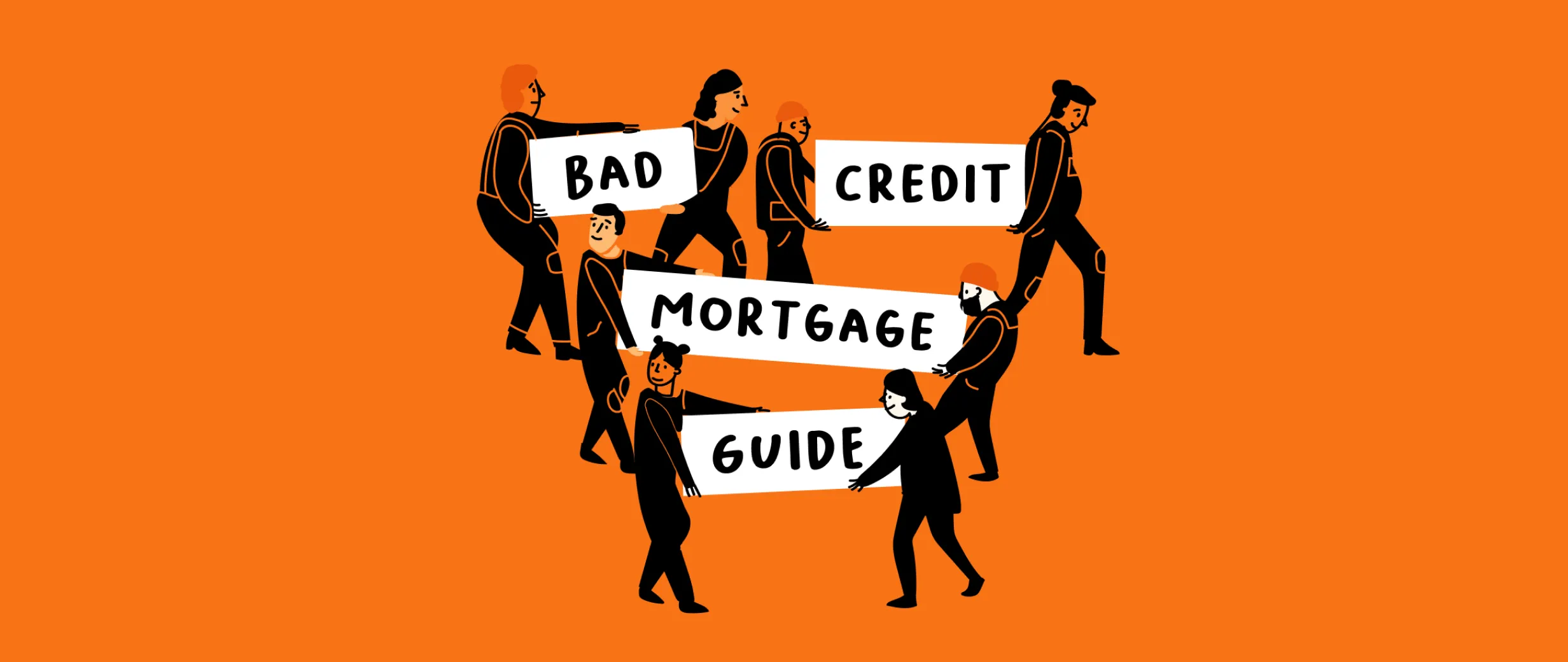Guarantor Mortgages Explained
If you’re struggling to get on the housing ladder, a guarantor mortgage can be a good option. Find out how Haysto could make your mortgage possible.
Your home may be repossessed if you do not keep up repayments on your mortgage.
Exclusive broker partner to

Author: Michael Whitehead Head of Content
8 mins
Updated: Nov 16 2025
Author: Michael Whitehead Head of Content
8 mins
Updated: Nov 16 2025
On this page
Please be aware that by following any external links you are leaving the Haysto website. Please note Haysto nor HL Partnership Limited are responsible for the accuracy of the information contained within external websites accessible from this page.
On this page
When deciding whether to give you a mortgage, lenders look at how much of a risk they’ll be taking. If you have a guarantor, that risk then becomes smaller as they’ll be agreeing to pay your mortgage if you can’t.
If you’re finding it hard to get a mortgage, but have someone willing to be your guarantor, this could make all the difference. It’s a big commitment though, so there’s a few things to consider.
What is a guarantor mortgage?
A guarantor mortgage is where someone else agrees to pay for your mortgage if you can’t.
You might need a guarantor mortgage if you’re on low income, have a bad credit history, or can’t save a lot of money for a deposit. It’s also an option if you’re a first-time buyer and haven’t yet built up a strong credit score.
Having a strong guarantor could mean that you’re more likely to be accepted for a mortgage. You could even borrow more than you would on your own, or require less deposit.
It’s not a joint mortgage - your guarantor won’t own any portion of your home, they’re just agreeing to pay if you can’t. Their name will be on the legal documents but they won’t have any stake in the property.
A mortgage lender will need to secure your mortgage against your guarantor’s home or their savings. This means they can repossess your guarantor’s home if your mortgage doesn’t get paid. Because of this risk, it’s a good idea to get advice from a mortgage broker before applying for a guarantor mortgage.
Who can be a guarantor?
You can ask pretty much anyone to be your guarantor as long as they’re over the age of 21 and have a strong credit rating. You could ask a parent, family member or friend. You could even ask your spouse - as long as you both have separate bank accounts. However, the majority of lenders will want your guarantor to be a relative. Whoever you ask, they should be someone you trust to cover your mortgage payments if needed.
Your guarantor will need to be financially stable. A lender will usually carry out a credit check on them before accepting them as your guarantor. The better their credit history, the more credible they’ll look to a lender. But there’s no minimum score required for someone to be your guarantor - they’ll just need to pass the affordability checks.
Most lenders will also want your guarantor’s home to have a high level of equity (the difference between what you owe on your mortgage and what your home is worth). Some lenders may insist your guarantor’s property is mortgage free.
If your guarantor isn’t a homeowner, a lender could consider securing your mortgage against their savings. In this case, your guarantor would need to keep their savings in the bank. They wouldn’t be able to withdraw any of the money until a certain amount of your mortgage has been repaid.

Let's Get Started
We Make Mortgages Possible
Our Mortgage Experts are fully qualified with experience in bad credit, self-employed and complex mortgages. They have a proven track record of getting mortgages for people who’ve been rejected elsewhere.
Get Started Now Get Started NowDoes being a guarantor affect your credit rating?
As long as everyone keeps up with the mortgage repayments, your guarantor’s credit score won’t be affected. But if the mortgage isn’t paid and falls into default, this will then be marked on both credit reports.
Whether you’re an applicant or a guarantor it’s a good idea to check your credit score regularly so you can spot any errors and see which areas need improvement.
We recommend using Checkmyfile**. It’s free for 30 days (£14.99 thereafter) and gives you a full picture of your finances, including information held with all three main credit reference agencies in the UK - Experian, Equifax and TransUnion.
Read more in our Guide: Checkmyfile Explained.
**When you click through to our affiliate links, we may earn a small commission at no extra cost to you. We only recommend sites we trust and believe in.
How much can I borrow with a guarantor mortgage?
You could potentially borrow a higher amount when you have a guarantor, but this will depend on the overall strength of your application and which lender you choose to apply with as the lending criteria will vary from one to the other. You and your guarantor would both need to pass the lender’s affordability assessment before a mortgage offer is made.
A guarantor mortgage isn’t a free pass to larger home loans. You would still need to prove you can afford the repayments on your own income as mortgage lenders won’t allow you to borrow beyond your means simply because you’re using a guarantor.
Can I get a guarantor mortgage with no deposit?
A big plus point of guarantor mortgages is that you might only need a small deposit, or may not need a deposit at all. If you pass the affordability checks, you could possibly get a 100% loan to value (LTV) mortgage with a guarantor (although these products are extremely rare these days).
This can be a great option if you’re a first-time buyer and can’t save for a deposit, but you probably won’t get the best mortgage rates. Usually, mortgages with the best interest rates are offered to people with bigger deposits, typically 20% and above.
That doesn’t mean you can’t get a good deal though, you’ll probably just need to work with a specialist mortgage broker who can identify the right lenders offering the most competitive rates for the deposit amount you have available. This will save you a lot of time and, potentially, some money too.
Access Your Credit Report
To get a full view of your credit information from all three agencies, use Checkmyfile free for 30 days, then £14.99/month (cancel anytime).
Get Started NowDoes being a guarantor affect your mortgage application?
Yes, being a guarantor could prevent you from getting a mortgage of your own, but this would depend on several factors, such as your annual income, other debt commitments, and the amount you want to borrow.
When considering your mortgage application, lenders will look at your total outgoings and current debts, including those you ‘may’ possibly be liable for in the future so they would need to take into account that you’re legally obliged to cover someone else’s mortgage repayments if they can’t.
If your disposable income cannot cover your own debt commitments plus the repayments for the guarantor mortgage (should you be required to do so), a lender could either lower their mortgage offer or decline the application, based on affordability.
Can I get a guarantor mortgage if I have bad credit?
Yes, it’s possible. A common misconception though is that a guarantor mortgage is easier to get if you have bad credit, which isn’t necessarily the case. A mortgage lender will still look at both yours and your guarantor’s credit score and if either of your rating falls outside the lender’s criteria then the mortgage might not be approved. If both of you have bad credit, it will be even more difficult.
It’s also important to remember that even if you have bad credit, it’s still possible get a mortgage without a guarantor. It really depends on the type of credit issue you’ve had, how long it’s been since it was registered on your credit file and the amounts involved. Choosing the right mortgage lender will also play a significant role.
If you and your guarantor have been working to improve your credit score since these issues happened then lenders will look more favourably on your application.
Can I remove a guarantor from my mortgage?
Your guarantor will stay on your mortgage unless you successfully re-apply for a new mortgage with another lender, typically by remortgaging. For this reason you’ll need to make sure both you and your guarantor are happy to enter into such a long-term financial commitment.
You can remortgage at the end of your current mortgage deal and when you’ve built up enough equity in your home. If at that point you’re confident your financial circumstances mean you could afford a mortgage without them (and the new lender has accepted your application), you can release the guarantor when you change mortgages.
Make sure you check the original terms of your mortgage, as some lenders will have different requirements. Some may not allow you to remortgage without your existing guarantor.
How Haysto could help make your guarantor mortgage possible
If you’re thinking about getting a guarantor mortgage, it’s a really good idea to work with a mortgage broker who has experience arranging these types of home loans.
Our Mortgage Experts have access to the right lenders who’ll look at your application and consider your unique circumstances. They’ll help you through the entire journey, from application right through to completion. Get started now.
We Make Mortgages Possible
Our Mortgage Experts are fully qualified with experience in bad credit, self-employed and complex mortgages. They have a proven track record of getting mortgages for people who’ve been rejected elsewhere.
Get Started NowRelated Articles

Joint Borrower Sole Proprietor Mortgages (JBSP) Explained
Find out how Joint Borrower Sole Proprietor Mortgages can provide a useful solution for your family to help you get a foot on the property ladder.
Read guide

Getting a Mortgage With Bad Credit
Bad credit doesn’t mean you can’t get a mortgage. Our guide to bad credit mortgages explains how we can help make your mortgage possible.
Read guide

What To Do If You've Been Refused a Mortgage
Find out what process you should follow if you’ve recently been refused a mortgage
Read guide
Information
Tools & Guides
Haysto, a trading style of Haysto Ltd, is an appointed representative of HL Partnership Limited, which is authorised and regulated by the Financial Conduct Authority.Registered Office: Haysto, Crystal House, 24 Cattle Market Street, Norwich, NR1 3DY. Registered in England and Wales No. 12527065
There may be a fee for mortgage advice. The exact amount depends upon your circumstances but will range from £599 to £1599 and this will be discussed and agreed with you at the earliest opportunity.
The guidance and/or information contained within this website is subject to the UK regulatory regime and is therefore targeted at consumers based in the UK.
Your home may be repossessed if you do not keep up repayments on your mortgage.








